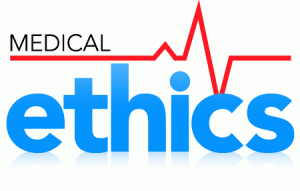When dealing with confidential medical information, one must adhere to the highest ethical and privacy standards. Medical transcriptionists deal with confidential information every day in the performance of their job, transcribing a physician’s spoken dictation into typed, easy to read notes. This means that medical transcriptionists must have a clear understanding of the legal and ethical issues that affect them.
Medical transcriptionists should be aware of HIPAA laws that affect them. HIPAA, the acronym for the Health Insurance Portability and Accountability Act of 1996, set down rules that must be followed when dealing with confidential medical information. It also regulates the ways in which confidential medical information can be shared, and who may have access to the information. Most employers will require new employees to attend a training seminar or session regarding HIPAA laws and privacy practices. However, if the medical transcriptionist is an independent contractor or runs a home business, it is their individual responsibility to make sure they are familiar with HIPAA requirements. If confidential, individually identifiable medical information is released improperly, the result could include fines, the loss of the violator’s medical license, jail time, or civil suits. Therefore, it is vitally important that medical transcriptionists treat the information they work with as secret, and protect it from any unauthorized people. This includes not sharing that funny story over the dinner table!

Medical transcriptionists should regard themselves as patient advocates. By careful and meticulous transcribing, medical transcriptionists help to reduce medical errors and misdiagnoses. Quality medical transcriptions help the patient to receive the best medical care possible. It is the medical transcriptionist’s duty to clarify any unclear term or unfamiliar medical diagnosis before transcribing it. This can be done by consulting the library of medical reference materials, discussing the questionable term with a more experienced medical transcriptionist, or requesting clarification from the physician or person dictating the note in question. Accurate and timely transcriptions will ensure that the patient’s chart is up to date and correct, which ensures the best possible medical care for each patient. This way, should an emergency arise, all the patient’s most current medical information is present in the chart, and is accurate and legible.
When an ethical dilemma arises, the medical transcriptionist has the duty to seek clarification. There are several ways of doing this. Discussing the situation with a supervisor or mentor is one way to gain clarity regarding the situation and help the medical transcriptionist decide what their next step must be. If this does not help to clarify the situation, the medical transcriptionist can go to a professional organization such as the American Association for Medical Transcriptions or another professional medical organization. It is the medical transcriptionist’s responsibility to make sure that the ethical dilemma is resolved in the best way for all involved, especially the patient.
Medical transcription is more than just typing up physician notes. By staying up to date on the latest in medical and diagnostic language, and meticulously ensuring accurate transcriptions, the medical transcriptionist is a vital part of today’s medical team. Click here to find next article about irrevocable trust.
